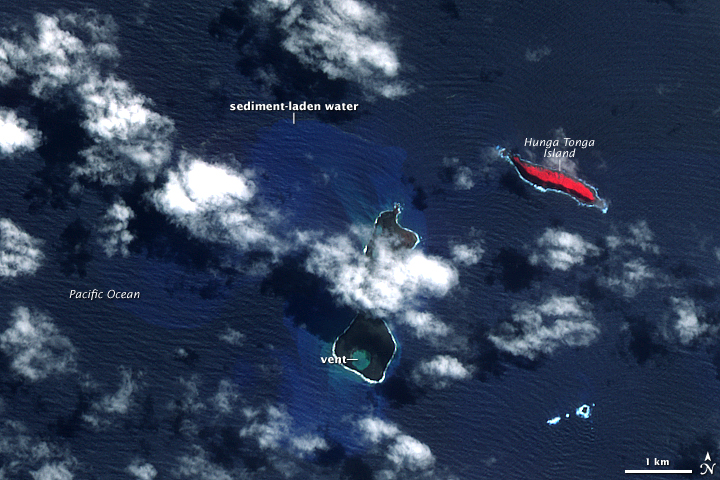It was announced today at the Fall Meeting of the American Geophysical Union (AGU) that the new island of Hunga Tonga Hunga Ha’apai is a natural lab to study life in Mars.
[youtube https://www.youtube.com/watch?v=Hds1OBxVg4s]
The volcanic island of Hunga Tonga Hunga Ha’apai, surfaced from the Pacific Ocean two years ago in 2015, and has been gradually transforming due to erosion until a few months ago when its shape stabilised.
The island grew out of the Hunga Volcano, a 1.3km-high mountain that is submerged in the southwest Pacific at the Tonga archipelago. Scientists at NASA are thoroughly studying the changes happening in the new island because they believe this island is similar to geological processes taking place in Mars.
This study is crucial to understand if life is possible on the Red Planet. Volcanic processes often carry good conditions that supports microbial communities.
According to Dr Jim Garvin, chief scientist at the US space agency’s (Nasa) Goddard Space Flight Center, Hunga Tonga Hunga Ha’apai rose from an underwater volcanic explosion in the Pacific, and this process can help us understand paleowater and the depths of Mars.
Dr Gavin said “…we are going to use Hunga Tonga Hunga Ha’apai on Earth to train us to understand Mars.” Dr Gavin and colleagues have been reporting their studies of HTHH at the the world’s largest annual gathering of Earth and planetary scientists, The Fall Meeting of the American Geophysical Union (AGU) which is taking place from the 11th to the 15th of December.
Words: Kate Reichardt | Subbing: Stephanie Malcolm | Images and video: NASA


